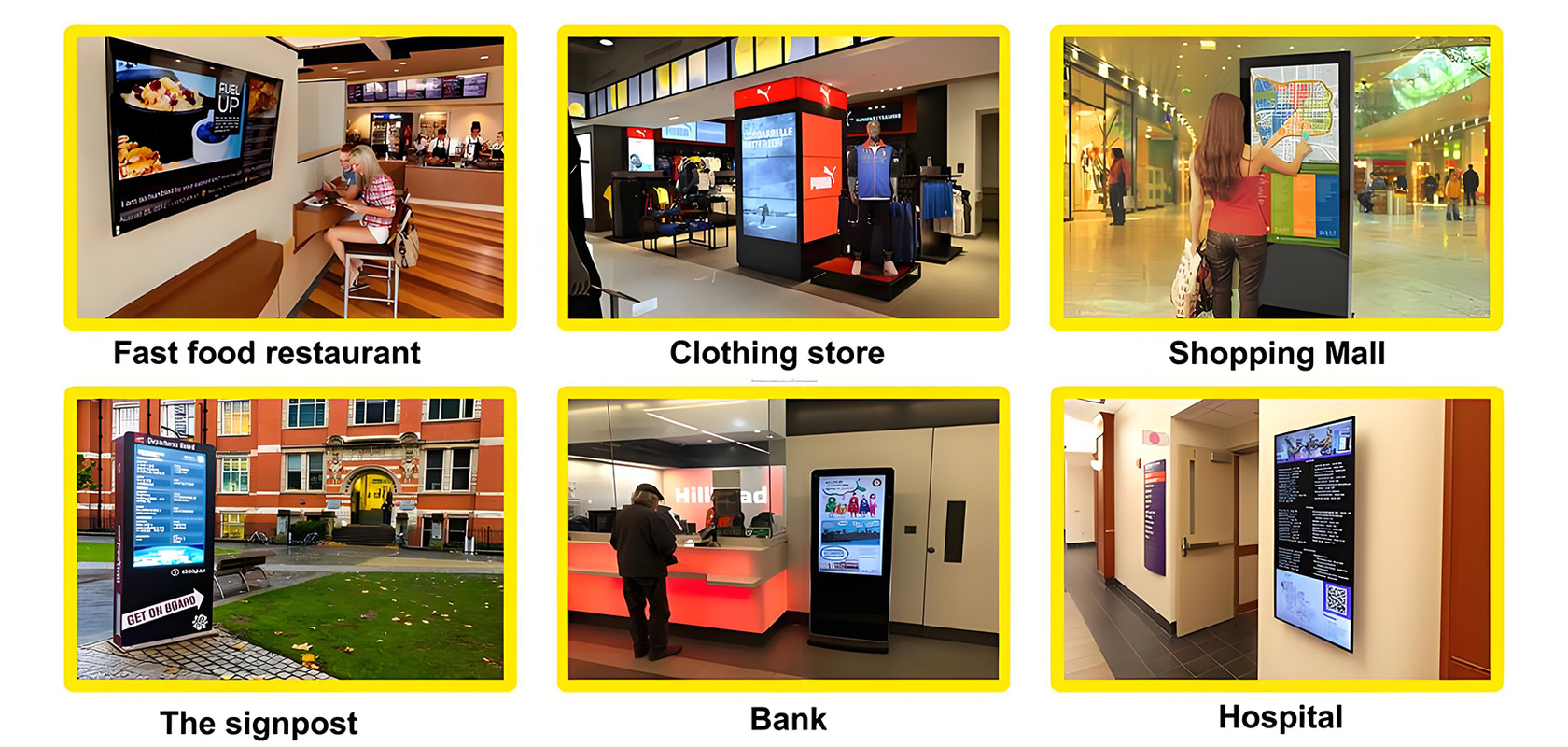Digital Signage for Legal Offices
In the realm of professional services, legal offices are often seen as bastions of tradition and formality. However, even within these hallowed halls of justice and law, the integration of modern technology can significantly enhance operational efficiency, improve client communication, and elevate the overall office environment. One such technological advancement that has gained traction in recent years is digital signage. This article explores the myriad benefits and applications of digital signage in legal offices, highlighting how it can be a game-changer for firms looking to stay ahead in an increasingly competitive landscape.

The Evolving Face of Legal Offices
Legal offices have traditionally relied on paper-based systems and static display boards for information dissemination. From announcing court schedules to displaying attorney bios, these methods have served their purpose but are now being outpaced by digital alternatives. The advent of digital signage brings a dynamic and interactive element to legal workspaces, transforming how information is presented and consumed.
Digital signage refers to electronic displays that show information, advertising, or other messages. These displays can be found in various formats, including LCD, LED, and projection screens, and can be strategically placed throughout a legal office to maximize visibility and impact. By leveraging digital signage, legal offices can streamline communication, enhance the aesthetic appeal of their space, and provide a more engaging experience for clients and staff alike.
Improving Internal Communication
One of the primary benefits of digital signage in legal offices is its ability to improve internal communication. Law firms are often bustling environments with multiple attorneys, paralegals, and support staff working on various cases simultaneously. Keeping everyone informed about important updates, deadlines, and meetings can be a challenge, but digital signage offers a solution.
For instance, digital displays can be used to broadcast daily schedules, court appearances, and case status updates. This ensures that all staff members are aware of their responsibilities and can plan their day accordingly. Additionally, emergency announcements or changes in schedules can be quickly communicated to the entire office, reducing the risk of miscommunication or missed deadlines.
Furthermore, digital signage can facilitate better collaboration among team members. By displaying shared documents, case files, or research materials on digital screens, attorneys and paralegals can easily access the information they need, regardless of their physical location within the office. This promotes a more connected and collaborative work environment, ultimately leading to improved productivity and case outcomes.
Enhancing Client Experience
In addition to internal communication, digital signage can also significantly enhance the client experience in legal offices. When clients enter a law firm, they often feel anxious or uncertain about the legal process. Digital displays can help alleviate these concerns by providing clear and concise information about the firm's services, attorney bios, and success stories.
For example, a digital signage system can showcase the profiles of the firm's attorneys, highlighting their education, experience, and areas of expertise. This not only helps clients feel more confident in their choice of legal representation but also demonstrates the firm's commitment to transparency and professionalism.
Moreover, digital signage can be used to educate clients about legal processes and procedures. By displaying informative videos or graphics that explain complex legal concepts in simple terms, firms can empower their clients to make more informed decisions about their cases. This level of client education fosters trust and builds stronger attorney-client relationships.
Promoting Brand Identity and Professionalism
Digital signage also offers legal offices an opportunity to promote their brand identity and professionalism. A well-designed digital display can reflect the firm's values, mission, and unique selling propositions, creating a lasting impression on clients and visitors.
For instance, firms can use digital signage to showcase their awards, accreditations, and testimonials from satisfied clients. This not only enhances the firm's credibility but also differentiates it from competitors. Additionally, digital displays can be used to promote the firm's community involvement and pro bono work, highlighting its commitment to social responsibility.
Furthermore, digital signage can be integrated with the firm's overall interior design to create a cohesive and aesthetically pleasing environment. By selecting appropriate colors, fonts, and imagery, firms can ensure that their digital displays complement the existing décor and reinforce the desired brand image.
Increasing Operational Efficiency
Another significant advantage of digital signage in legal offices is its potential to increase operational efficiency. By automating the process of updating and displaying information, firms can save time and resources that would otherwise be spent on manual tasks such as printing and posting paper notices.
For example, digital signage systems can be integrated with the firm's calendar and scheduling software, allowing for automatic updates to court schedules and meeting reminders. This eliminates the need for staff members to manually update paper-based systems, reducing the risk of human error and ensuring that information is always accurate and up-to-date.
Additionally, digital signage can be used to streamline the check-in process for clients. By displaying a digital queue or appointment schedule, firms can reduce wait times and improve the overall client experience. Clients can easily see when their appointment is and be notified when it's time to meet with their attorney, creating a more organized and efficient environment.
Future-Proofing the Legal Office
As technology continues to evolve, digital signage will play an increasingly important role in the legal industry. By investing in digital signage now, firms can future-proof their offices and stay ahead of the curve. As new technologies emerge, such as artificial intelligence and augmented reality, digital signage can be adapted to incorporate these innovations, further enhancing its capabilities and benefits.
For example, in the future, digital signage could be used to provide real-time translation services for clients who speak different languages. By leveraging artificial intelligence, digital displays could instantly translate legal documents or conversations, making it easier for attorneys to communicate with clients from diverse backgrounds.
Furthermore, as remote work becomes more prevalent in the legal industry, digital signage can be used to create a more inclusive and connected virtual office environment. By displaying video feeds from remote team members or virtual meeting rooms, firms can maintain a sense of community and collaboration, even when staff are working from different locations.
In conclusion, digital signage offers a multitude of benefits for legal offices, from improving internal communication to enhancing the client experience and promoting brand identity. By leveraging this technology, firms can streamline their operations, increase efficiency, and stay ahead of the competition. As the legal industry continues to evolve, digital signage will play an increasingly important role in shaping the future of legal offices. By investing in this technology now, firms can create a more dynamic, engaging, and professional environment that benefits both clients and staff alike.
Application scenarios of digital signage

Tags:
self service kiosk touch kiosk digital signage interactive display interactive touch whiteboard kiosk video wall wall outdoor kiosk IP68 IP67 screen Shopping MallCurrent article link:
https://www.lcdkiosk.com/news/1267.html







